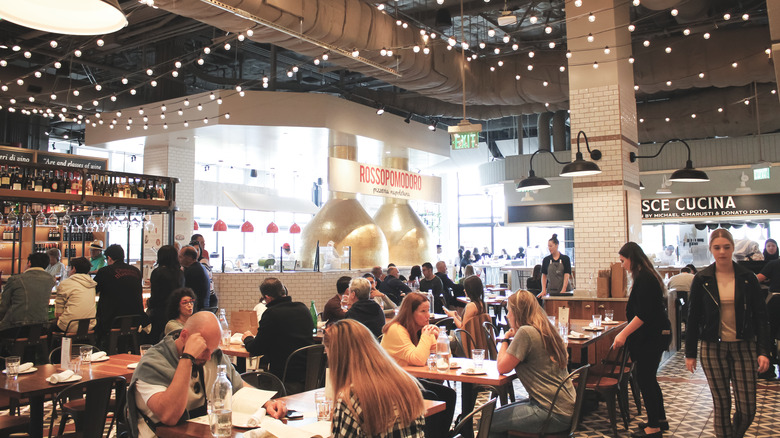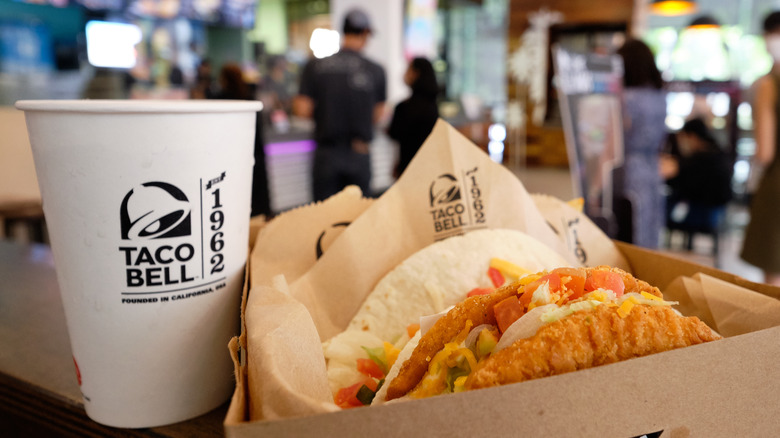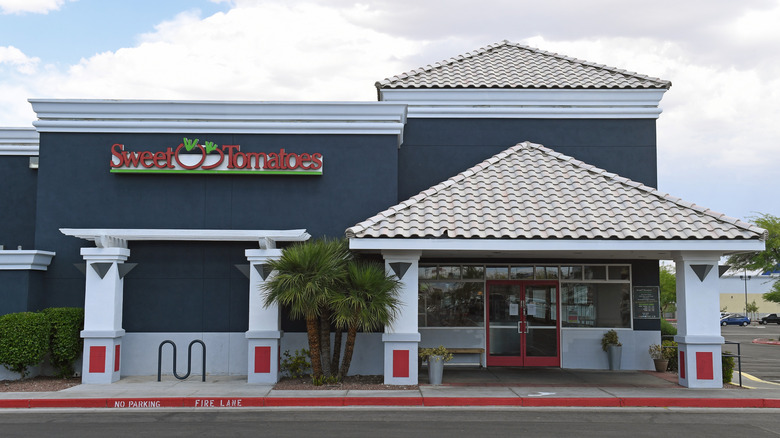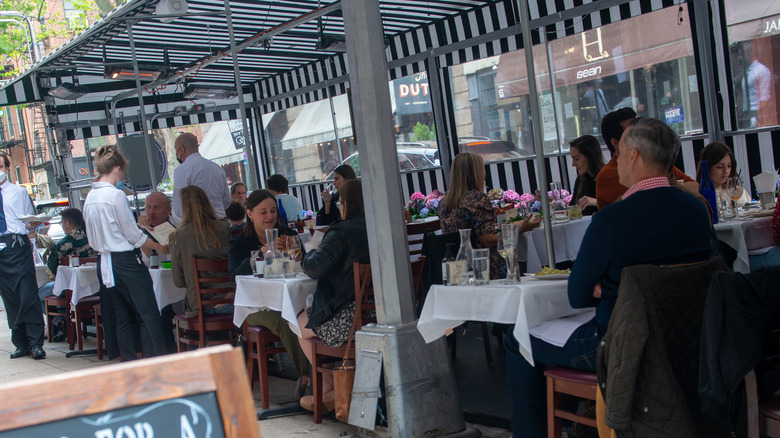The Real Reason Chains Are Taking Over The Restaurant Industry
Empty spaces. Fresh "for rent" signs. If you've recently returned to the restaurant scene, you might have noticed a change in your area – and that change might have entailed the gradual disappearance of small family-run coffee shops or restaurants, or a change in tenant, with independent coffee shops being taken over by larger chains like Starbucks. But before you get upset with anyone in particular, know that this phenomenon is not happening in a vacuum and that, in fact, it is a scenario that is being repeated in different parts of the country.
The closures are partly driven by a change in client needs that arose during, and because of, the COVID-19 pandemic. Customers like Joyce Hill, an academic with Ohio's University of Akron told The Wall Street Journal she was unlikely to patronize local restaurants after discovering it was more convenient to order from a chain, and because she wasn't comfortable dining in. "With a few clicks, I can order a whole meal, pay for it, and not have to leave my car to pick it up," Hill explained.
The operating gap between chains and independents
Large-scale restaurant operators were aware this pivot would come about even back in 2020 when, during an earnings call, Domino's then-CEO Ritch Allison warned that much as diners loved independent restaurants, there was a new normal that all owners and operators needed to navigate. "If you were operating an independent pizza restaurant with a significant amount of your business dine-in, and if you were relying on beverage mix and alcohol to bring a good bit of margin to your business, if that business has now been shifted to where you have to do most of it off-premises and if most of that has to come by paying very high fees to third-party aggregators, it's just a really difficult operating environment," he said, per Restaurant Business.
As further proof of the disparity between the chain restaurants and independents and as smaller restaurants were closing, Yum Brands, which operates Taco Bell, KFC, and Pizza Hut, said it had opened a new restaurant every two hours in 2021, which resulted in 4,180 new spots. CEO David Gibbs called that growth a testament to "the health of our business, iconic brands, capable, committed and well-capitalized franchise partners and strong unit economics," per Insider.
Not all chain restaurants survived unscathed
Even while COVID-19 was picking up steam back in 2020, publications like The Wall Street Journal were already warning of a divide that was brewing within the restaurant industry between chain outlets and independents. In October of that year, while companies like El Pollo Loco Holdings were talking about the pandemic's silver lining and the opportunity to "emerge stronger," almost 22,000 restaurants had closed across the country between March 1 and September 10, three quarters of which were brands that listed fewer than five locations. On the whole, the National Restaurant Association predicted the pandemic would take away $240 billion in sales for the year.
To be fair, the pandemic didn't treat all chains equally. Insider says TGI Friday's closed about 20% of its restaurants, Sweet Tomatoes/Souplantation shuttered 97 of its outlets, and Le Pain Quotidien shed up to 63 out of its 98 restaurants. Still, Joe Pawlak, managing principal at Technomic, a foodservice insights provider, told CNN that for the most part, "The pandemic caused a lot of small independents to go out of business, [because they] didn't have the financial wherewithal [or] sophistication to make it through."
There are ways to help independent restaurants
The National Restaurant Association says what happens now depends on how much local, county, and state governments and patrons are both able — and willing — to help independent restaurants. Its vice president of state affairs and grassroots advocacy, Mike Whatley, told Pew, "A lot of us have developed habits during the pandemic where we haven't been out and about as much. We haven't gone and done things in a social environment. There's a huge opportunity there for local leaders to stimulate the economy without having to spend a single penny [of local funds]." For instance, several states have legalized the sale of to-go alcoholic beverages, including cocktails, beer, and wine, and given restaurants a chance to continue offering outdoor dining.
Fewer restaurants also have meant that more aggressive, aspiring independents are presented with the opportunity to open new spaces. As Mississippi native Cedric Bush put it, "Why start a business in a pandemic? Well, God says 'I'll flourish you in a time of famine.' So even in famine, he would direct you to do things then he makes it possible," Bush said. "We can't worry about the pandemic. ... People are in need: They need to smile again."



